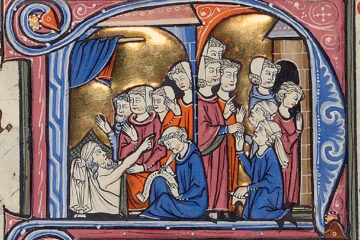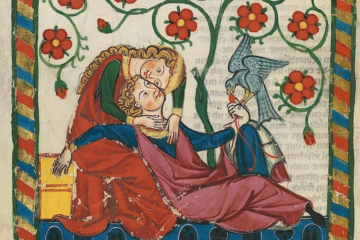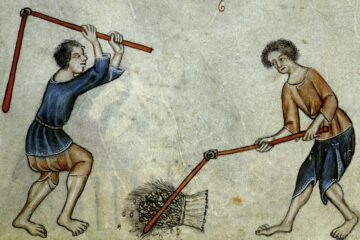by Harry Gulcher, Master of History in Rosewood
If someone had asked me where Fray was before I heard about this war, I would not know the answer to that question. It’s not unusual for miniature wars like these to slip through the cracks when we have grand spectacles like the English Wars or the two Phoenixes of the century. The only reason this war can be charted down is because of its close ties to Rosewood and the local nobility there.
Frey is a small settlement to the north of Rosewood, the capital City of the Empire. It boasts a few wooden houses, wooden palisades, one watchtower, a village idiot whose name is Jeff, and another 70 odd villagers. In the northern part of the settlement is the fort through which it got its name, Frey Fort. Built by the House of Frey only a decade or two prior, so it’s a relatively new settlement.
In early 1087 the Baron of Frey was Lord Tarwick, a rather well-known lord and respected among the intellectual community. After his unusual death, three pretenders rose to the occasion and attempted to claim the land for themselves. The appointed Sir Tancrede, the brother of Lord Tarwick, Sir Francis “the Handsome” and his widow, Maria “the Wicked”. The war was lost for the two kin of Tarwick. Sir Tancrede Morner was named Lord Tancrede “the Bloody Baron” and of the new house Freyborn. This appeared to end things, but Lord Tancrede forgot about Philipa Frey, the widow of Sir Francis, but more importantly, his heir, a mere babe by the name of Philip Frey. Philipa found herself in an advantageous position, since she was the daughter of Lord Priorton and could muster more men in case Tancrede attacked. So, in order to compromise, the two sides signed a white peace and a treaty. Tancrede would assume the role of Baron, but young Philip’s claim would not be revoked.
Of course after some time, Philipa was able to rally some men to her cause and restore Philip’s birthright. Lord Priorton and Anderton agreed to aid her in her struggles, while Frey stood alone. Their only ally, House Fisher was too preoccupied after the war in Munrich to lend any aid.
When war was declared, Sir Tancrede was vastly outnumbered and underequipped. However, the war did not end in the opening month. The two armies seemed hesitant in fighting each other for some reason.
War was declared on the 3rd March 1092, but the first battle happened only around June. The battle saw the defense of Frey. If the army fell then, the war would be over. Lord Tancrede’s 50-75 men faced off against and odd 100 or so men. In the battle, most of Tancrede’s men dropped their weapons and retreated into the settlement, leaving the fighting few outside and effectively forfeiting the entire battle and the future siege. The commander, Sir Louis was knocked off his horse on the outside and taken as a prisoner. He fought valiantly and earned the title “the Loyal”. Tancrede however was not as fortunate. His men blocked the gates and hoped to wait out the siege, which would surely break come winter.
It has been some months since we were last able to leave Frey. The invaders seem to be ready for another assault. I fear if they try again they will be successful. Lord Tancrede seems to slip into madness with each coming day. Food is scarce and morale is low. I plead that Rosewood finds this letter in time and send us a relief force. Someone, anyone. Anything…
If we could just hold out for a month or two, at least until the first snowfall. The siege might break then, we might stand a chance. God keep our archers true, God keep our lord well and God save us…
7th September 1092
This was a letter sent by the court chaplain of Frey, to the small council in Rosewood. The request was declined and within a month, the palisades of Frey fell and the invaders poured in. The good thing about this incursion was that it followed the Pax Dei code. No civilians were harmed, no women raped and no children taken. Only those who carried arms were attacked, the rest were left to their devices.
Sir Tancrede and his council fled and locked themselves in their Fortress. The once meek and indecisive villagers joined the attacking side, noting that Sir Francis was never a cruel ruler and that his son is sure to be the same. By birthright, Philip Fray ought to be the rightful Lord. And so, with their morale reinvigorated, they laid siege to the Fort and come November, Sir Tancrede and his council members were arrested and hanged for dominicide and treason. His death on the 23rd November 1092 marked the end of the war, and Lady Philipa “the Black” was named Baroness-Mother to the still young Philip. She would rule until 1100 when her son became of age.
The war was short, of course it would be. Such a war can only last so long, given the scale of things. But still we can do well and remember that half-measures will always come back to bite us in the future.


